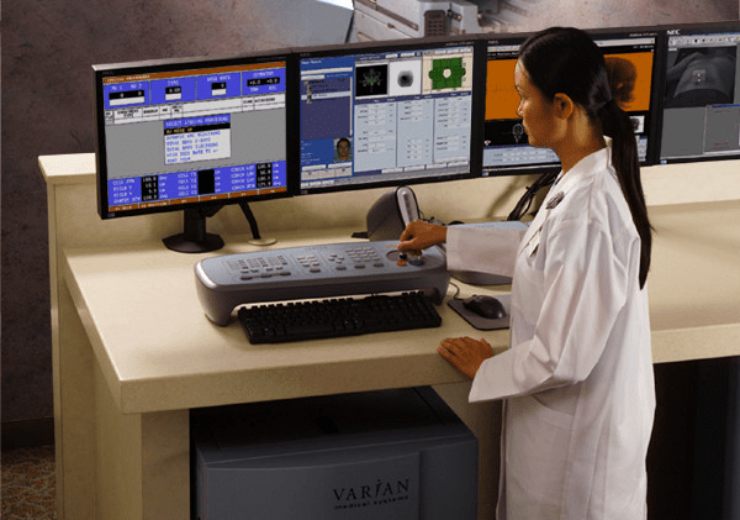The FDA’s initial approval for the cardiac radioablation trial has been given for 80 patients at 10 US locations

Varian gets FDA IDE for the RADIATE-VT trial. (Credit: Varian Medical Systems, Inc.)
Varian, a Siemens Healthineers company, has received an investigational device exemption (IDE) from the US Food and Drug Administration (FDA) for the RADIATE-VT clinical trial of its cardiac radioablation (CRA) system.
The RADIATE-VT trial is planned to be a global, multi-centre, randomised controlled trial to assess the safety and effectiveness of cardiac radioablation in comparison to recurrent catheter ablation in patients having high-risk refractory ventricular tachycardia (VT).
The FDA’s initial approval for the trial has been given for 80 patients at 10 US locations. A total of 380 patients are expected to be enrolled at up to 30 centres around the world.
Varian said that the subjects will be randomly assigned to receive catheter ablation or cardiac radioablation using the company’s CRA system.
The main goal of the RADIATE-VT clinical trial is to show that in patients with high-risk refractory VT, CRA offers a safer experience with equivalent VT control, when compared to repeat catheter ablation, the medical device maker added.
Varian senior vice president and chief medical officer Deepak Dee Khuntia said: “Varian has long been a leader in radiotherapy innovation, and through this trial we’re expanding the application of our technology for a new patient population.
“The use of our novel cardiac radioablation system to treat cardiac arrhythmias is an exciting opportunity to provide a non-invasive treatment option that may improve outcomes for some patients with refractory ventricular tachycardia.
“We are eager to see this solution evaluated in the clinical trial setting at leading institutions around the world, which also would support future submissions for regulatory marketing authorisation.”
The FDA designated Varian’s CRA system as a breakthrough device in 2021. The system is made to support the full workflow for cardiac radioablation, including treatment delivery, planning, and targeting.
The US-based medical device maker claimed that the CRA system would administer precisely targeted high-dose radiation non-invasively, thereby allowing ablation throughout the whole thickness of the myocardium.
